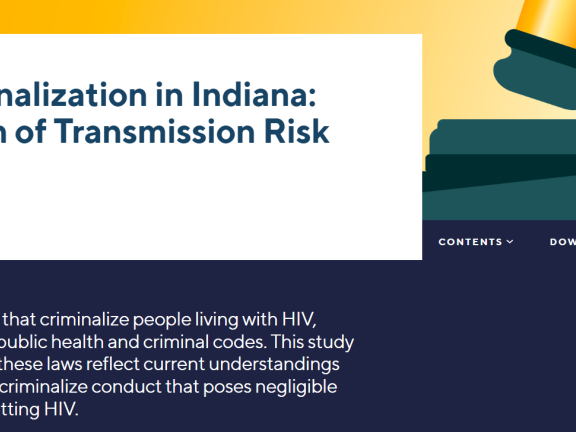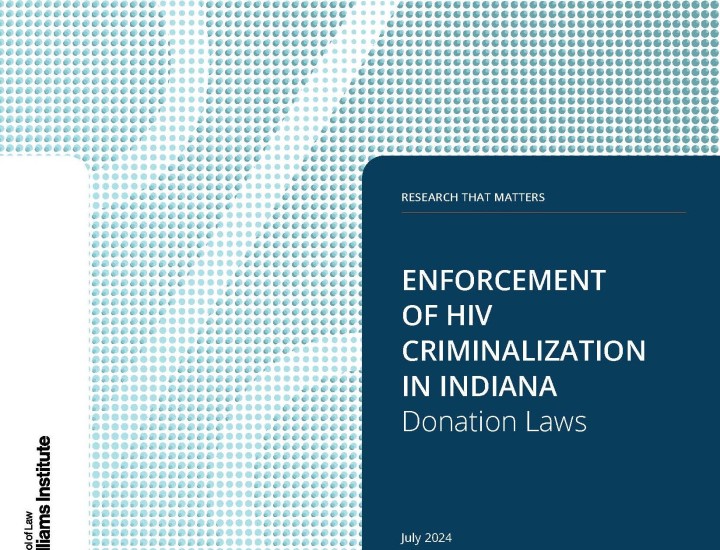Published November, 2024
HIV Criminalization in Indiana: Evaluation of Transmission Risk, Williams Institute UCLA School of Law, July 2024

Overview
The authors analyzed how current scientific knowledge on HIV transmission applies to laws in Indiana that criminalize certain behaviors of people living with HIV (PLWH). Indiana has six such laws criminalizing PLWH, spanning both the public health and criminal code, hereafter referred to as HIV criminal laws. These Indiana codes (IC) are as follows. Shortened versions of the laws in parentheses are used throughout the report.
IC § 35-45-21-1 Transferring contaminated body fluids (Contaminated Body Fluids)
HIV-Infected Semen: IC § 16-41-14-17 Donation, sale, or transfer of HIV-infected semen; penalties (HIV-Infected Semen)
IC § 16-41-7-1 Individual with a communicable disease’s duty to inform persons at risk (Duty to Inform)
IC § 35-45-21-3 Failure of individuals with communicable diseases to inform persons at risk (Failure to Inform)
IC § 35-42-2-1(c2)(f)(h) Battery by bodily fluid or waste with HIV penalty enhancement (Battery by Bodily Fluid/Waste)
IC § 35-45-16-2 (c-f) Malicious mischief by body fluid or waste with HIV penalty enhancement (Malicious Mischief)
This report—one in a series examining HIV criminalization in Indiana—evaluates whether Indiana’s HIV criminal laws reflect accurate and up-to-date understandings of HIV science and whether these laws criminalize conduct that has negligible or no risk of transmitting HIV.
Authors of the report:
Nathan Cisneros, HIV Criminalization Project Director
Carrie Foote, Professor, Indiana University-Indianapolis
Phoenix Schlebecker, Research Associate, Indiana University-Indianapolis
Brad Sears, Founding Executive Director
Copyright Information: CHLP encourages the broad use and sharing of resources. Please credit CHLP when using these materials or their content. and do not alter, adapt or present as your work without prior permission from CHLP.
Legal Disclaimer: CHLP makes an effort to ensure legal information is correct and current, but the law is regularly changing, and the accuracy of the information provided cannot be guaranteed. The legal information in a given resource may not be applicable to all situations and is not—and should not be relied upon—as a substitute for legal advice.

